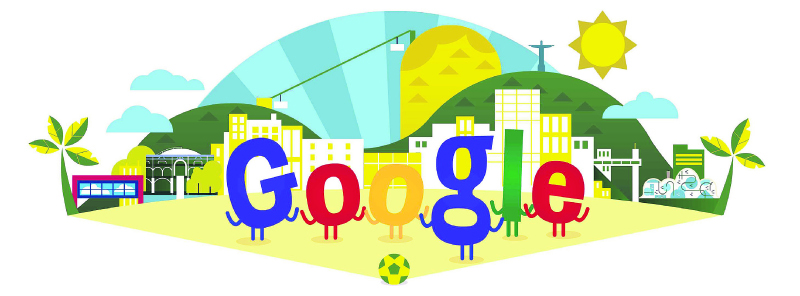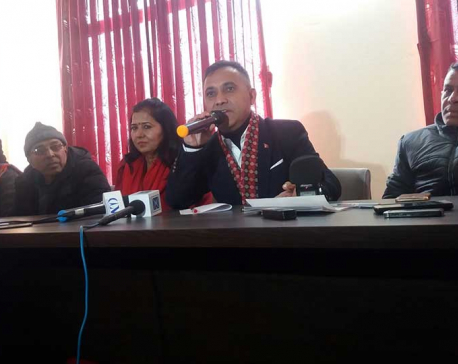
OR

Back in school I used to love those light abridged classics, short and sweet, just the way I fancied them in my early teens. It was then that I discovered HG Wells and his time-travel machine and I wanted to immediately take it for a ride, racing back to the time of Prithvi Narayan Shah and founding of modern Nepal, about which I had read so much in our course books.
More than 120 years since Time Machine was first published, time travel is still a stuff of imagination. But, then, today, there is Google.
Who do you think knows you the best? Your mom, dad, sibling or your best friend? Or is it your adorable dog? In recent research, Google’s browsing history has proven to be a more reliable judge of your character and career success than the testimonies of your loved ones. (Seriously. Go Google.) This portends to a perilous future, as Yuval Noah Harari warns us in his fascinating new book Homo deus.
Harari writes of a future of all-knowing computer algorithms when human beings, with their limited processing capacity and puny memory, will be virtually useless.
Think of a profession, any profession, the kind of work you think will be impossible to automate. Medicine? We already have expert algorithms that can better diagnose diseases compared to error-prone physicians. Surgery, certainly? Again, carefully programmed robots are proving far better at it than the shaky human hands. Plumbing, then? Soon your sinks and pipes will come with in-built sensors that will remind you to replace them long before you need a plumber for running repairs.
This reminds of this famous case of the Kmart departmental store in the US that was sending out fliers advertising baby nappies to a house with no new mother. Incensed, the head of the house rang the store and scolded its staff for the ‘unforgivable’ error. Then, after a week, he called again, to apologize. His unmarried daughter was pregnant after all, but no one in the family knew, not even the daughter! Yet, on the basis of the daughter’s buying habits, online and at the store, Kmart rightly deduced she was pregnant. That is the kind of creepy future we humans are headed to. But can we somehow escape such a fatalistic future?
It will be hard. Already, computer programs produce world-class poetry and news websites (Forbes, LA Times) publish computer-generated news. It will not be long before they start producing top-notch news stories, articles and books. The bestsellers of tomorrow won’t be written by humans; it will be computer algorithms at work again, as they process the enormous volume of literature available online these days and gather real-time information on people’s reading habits via e-book readers like Kindle (On which pages or keywords do people pause? Which books are most of them reading?).
When I was in school back in the Jurassic period, the use of computers in Nepal had only just started. Those were the days when we stored data on floppies (yes, they flopped). Then came hard disks, and now you can store your entire movie collection on a puny pen drive; the rest of the information, in fact all the information in the world that you will never need, you can get from Google.
A colleague of mine who teaches at a college in Kathmandu was telling me the other day how the personal records of all his students were stored online. The parents could check, from the comfort of their home, whether their children were attending school, taking the right courses, and submitting their homework on time: ever bunk chemistry class for Tom Cruz and see your monthly allowance dry up faster than exposed nail polish.
Are you applying for a job after passing out of college? Rest assured that your prospective employers will check your Google history, or get someone to do it. Hacking into your online accounts is not as hard as you think.
In March 2016, 18-year-old Bikash Paudel of Tanahun was arrested by Nepal Police on the charge of hacking government websites ‘for fun’. Paudel confessed to having hacked servers and breached into databases of over 200 government agencies, including Nepal Telecom. Paudel could have known who you talked to over your NTC phone, for how long, and when. A kid of 18!
But even the prodigious Paudel is no match for today’s machines. At a recent event in Hong Kong, two robots, Han and Sophia, were debating the future of humankind. To one of the questions from the human moderator, Han replied: “In 10 or 20 years, robots will be able to do every human job”. Han even ‘joked’ that robots will soon “take over the world”. But how did the two robots learn to think and talk like humans? By being trained to mimic humans on Google’s YouTube, of course.
A food for thought: Are you sure that the article you are reading right now has not been generated by a computer algorithm? For the right answer, please google.
The writer is the op-ed editor at Republica. He can be contacted at biswas.baral@gmail.com
You May Like This

Mentored by Michael Clarke, backed by Ricky Ponting, Sandeep Lamichhane gets IPL call
Back in 2016, Delhi Daredevils scouts looking out for a young spinner zeroed in on a Nepali leggie by the... Read More...

Politics should be guided by agendas not by age: NC spokesperson
KATHMANDU, Jan 10: Nepali Congress spokesperson Bishow Prakash Sharma has said that the politics should be guided by agendas rather... Read More...

Doctor by degree, writer by heart
Amardeep Keshari is a 23 year old writer from Kalaiya, Bara. Though he graduated from Wesleyan University in the US... Read More...










Just In
- Bangladesh protest leaders taken from hospital by police
- Challenges Confronting the New Coalition
- NRB introduces cautiously flexible measures to address ongoing slowdown in various economic sectors
- Forced Covid-19 cremations: is it too late for redemption?
- NRB to provide collateral-free loans to foreign employment seekers
- NEB to publish Grade 12 results next week
- Body handover begins; Relatives remain dissatisfied with insurance, compensation amount
- NC defers its plan to join Koshi govt








Leave A Comment